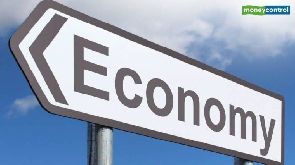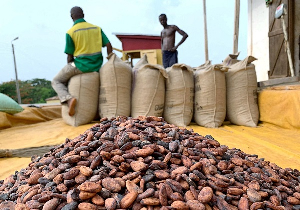Circular Economy is a new way of creating value and ultimate prosperity out of materials that are known or seen in other domains as “waste”. This concept works by improving the quality of artifact production through design, innovation, and creativity. Thus, using resources more efficiently over and over. This concept mainly employs the idea of reusing, recycling, and recovery of materials.
From the current world’s perspective of production, resources are obtained from the environment for production. The products that are no longer needed are disposed of into the environment and the aftermath negatively affects the ecosystem’s ability to mitigate or adapt to climate change. However, the circular economy emboldens the durability in production, recyclability, and new products produced out of old materials.
This concept in a stricter sense does not need to be invented as it already exists. This has been a notion practiced by our ancestors clearly depicted in the re-use of materials for shopping over time.
Shifting attention to plastic waste an aspect of circular economy, it is imperative to note that Ghana generates approximately 840,000 tonnes of plastic waste per year (World’s Economic Forum, 2023). However, about 9.5% of these wastes are collected for recycling purposes according to the World’s Economic Forum. There is much to be desired about where the remaining 90.5% of plastic waste ends up.
With a total of 8 million tonnes of plastic waste leaking into the oceans yearly as emphatically stated the by World’s Economic Forum, (2023), it is not surprising the number of plastics is envisaged to be more than the number of fish in the sea in the year 2050. According to the World Wildlife Fund (WWF), an average person could be ingesting approximately five (5) grams of plastics every week.
With much emphasis on macro-plastics (larger plastic units), it should not be forgotten that it is the fragmented parts of these plastics called micro-plastics that accumulate in the tissues of aquatic life consumed by humans. This circuitously implies that humans are consuming fractions of the plastics that end up in the oceans through the consumption of fish.
Notwithstanding, toxic chemical additives and pollutants found in plastics such as polypropylene, Phthalates (BPA) used in plastic threatens human health on a global scale.
Among these health implications are cancer, liver dysfunction oxidative stress, DNA damage, and inflammation, among other health problems. However, others persist in the environment and bio-accumulate in exposed organisms.
A visit to beaches such as Korle-Gonno, and Labadi Beach, and towns within Accra like Korle-Gonno, and Chorko after heavy rainfall will enlighten your view on the level of plastic waste management as a nation.
It is therefore important that the already existing concept which is known by few be publicized in the quest to create a waste-free environment to solve this obstinate problem of environmental pollution. This is achievable through innovative and creative ways of making the most use of the material resources available to us by applying three basic principles: reduce, reuse, and recycle.
In this way, the life cycle is extended, waste is used and a more efficient and sustainable production model is established over time. This phenomenon emulates nature on the principle that “everything has value and everything is used”, where waste becomes a new resource. I hereby call upon all stakeholders and the nation as a whole to help save this deteriorating environment from waste pollution.
#Circular economy the new order in creating a waste-free environment
#Nothing is a waste to an innovative and environmentally conscientize person.
Opinions of Wednesday, 5 July 2023
Columnist: Peprah Elijah Kwasi















